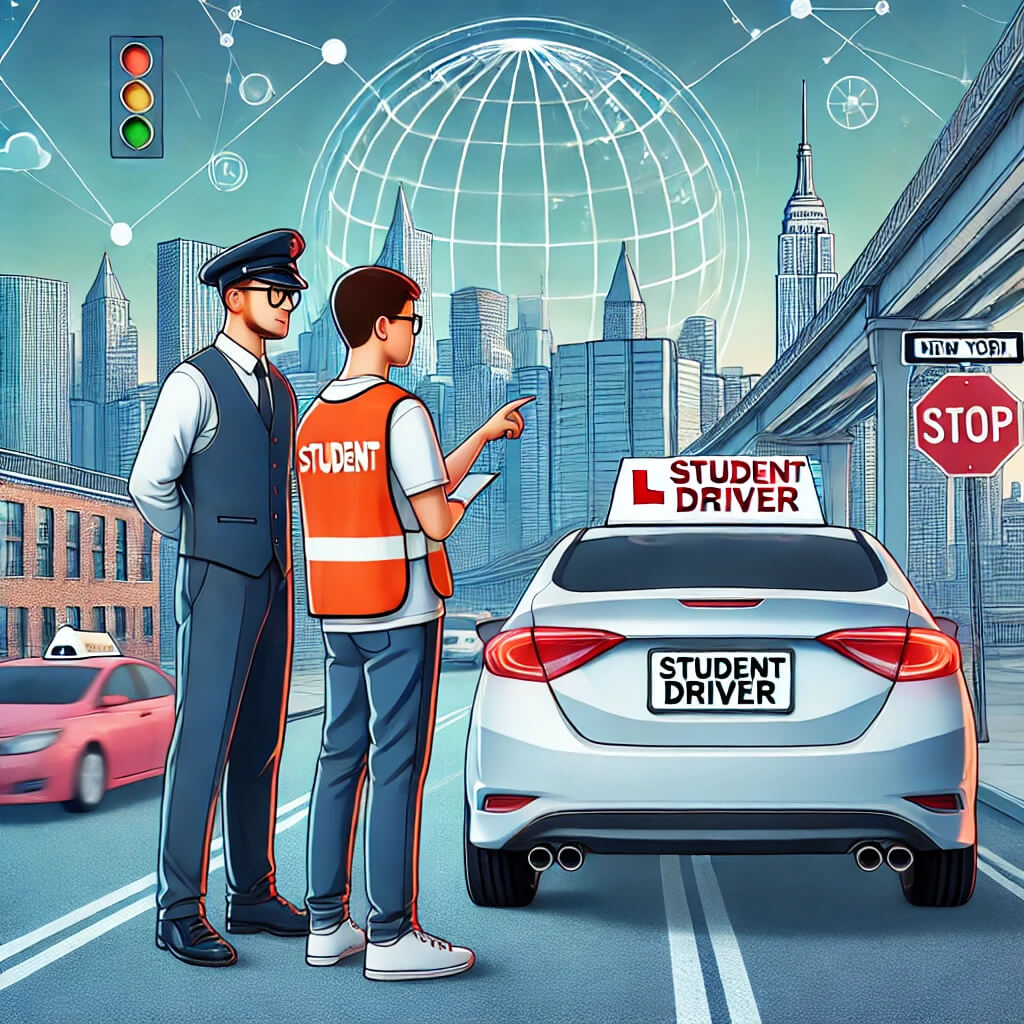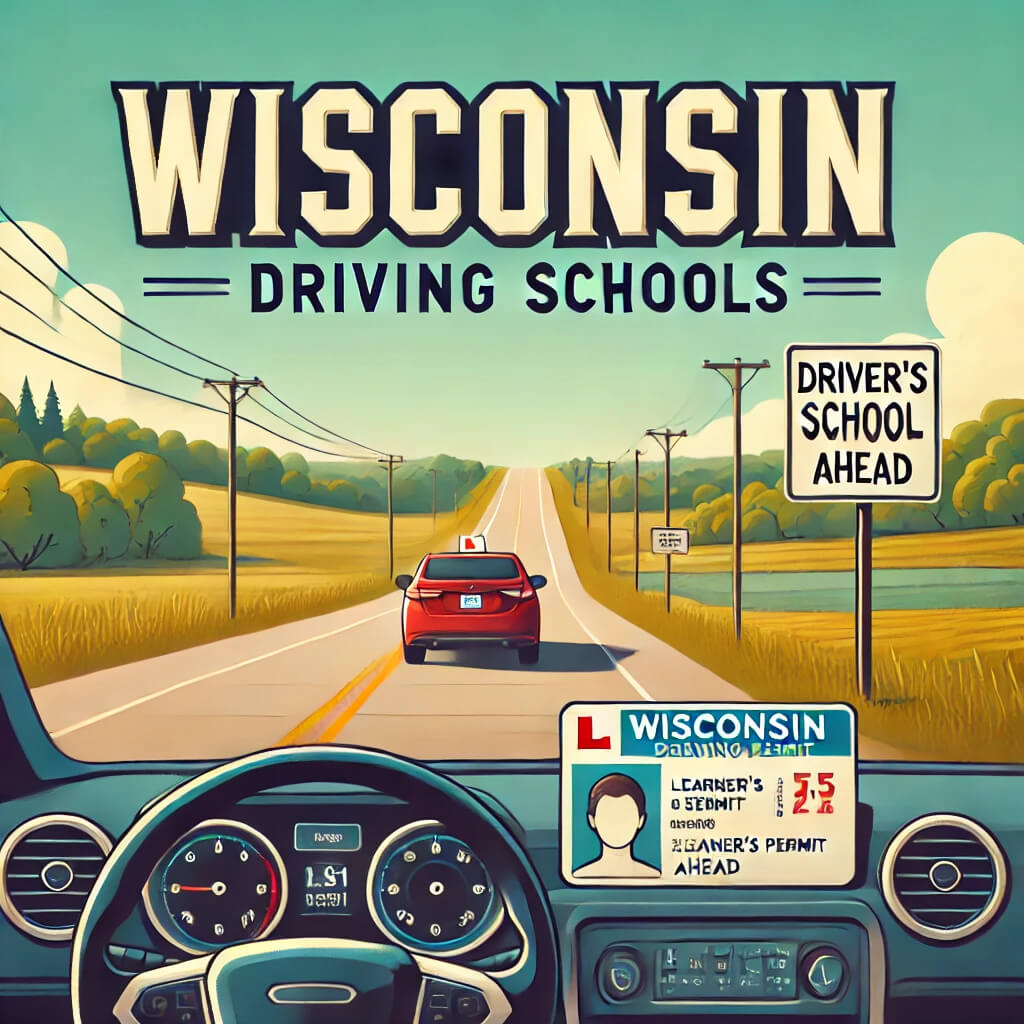“Did you know that mastering Rhode Island’s roads starts with choosing the right driving school? Whether you’re a new driver or looking to improve your skills, this guide is your roadmap to success.”
2. How to Choose the Right Driving School in Rhode Island
Selecting the right driving school is a critical step in building confidence and mastering the skills required for safe driving. Here are the key factors to consider:
Key Factors for Choosing a Driving School
1. Cost Considerations and Affordability
- Understand Pricing Structures: Compare the cost of individual lessons versus package deals. Many schools offer discounts for bundled sessions.
- Hidden Fees: Check for additional charges such as registration fees, road test preparation fees, or use of the school’s vehicle for testing.
- Budget-Friendly Options: Look for affordable schools or community programs that offer subsidized rates for teens, adults, or veterans.
2. Location Convenience and Accessibility
- Proximity to Home or Work: Choose a school that is conveniently located to minimize travel time.
- Service Area: Confirm whether the school serves your area and offers pick-up and drop-off services for lessons.
- Flexible Schedules: Opt for schools with evening or weekend classes if you have a busy schedule.
3. Course Offerings
- Diverse Course Options: Look for programs tailored to your needs, such as:
- Teen Driving Courses: For first-time drivers under 18.
- Adult Refresher Courses: Ideal for adults returning to driving after a break.
- Defensive Driving Courses: Focus on safety and reducing insurance costs.
- Winter Driving Lessons: Prepare for Rhode Island’s harsh winter conditions.
- Learning Modes: Consider whether the school offers:
- Online Classes: For flexibility and theoretical instruction.
- In-Person Training: For hands-on driving practice and one-on-one attention.
4. Certifications
- DMV Approval: Verify that the school is licensed and certified by the Rhode Island Department of Motor Vehicles (DMV). This ensures compliance with state standards.
- Instructor Qualifications: Confirm that instructors are experienced, DMV-certified, and trained in teaching methods suitable for your needs (e.g., patient with nervous drivers or multilingual instruction).
- Student Reviews: Check testimonials or ratings from former students to gauge the school’s reputation and effectiveness.
By evaluating these key factors, you can confidently select a driving school in Rhode Island that aligns with your budget, location, and learning preferences while ensuring a high-quality and safe driving education.
3. Top-Rated Driving Schools in Rhode Island
Finding the right driving school involves comparing various factors, such as cost, services, and user reviews. Below is a comparison chart of top-rated schools in Rhode Island, along with a spotlight on their unique benefits.
Comparison Chart: Features of Top Driving Schools in Rhode Island
| Driving School | Cost | Unique Services | User Ratings | Location |
|---|---|---|---|---|
| Rhode Island Driving Academy | $500–$750 (packages) | DMV-certified instructors, defensive driving, online lessons | ⭐⭐⭐⭐ (4.5/5) | Statewide |
| ABC Driving School | $400–$650 | Teen courses, flexible schedules, multilingual instructors | ⭐⭐⭐⭐ (4.3/5) | Providence Area |
| Safe Road Driving School | $450–$700 | Winter driving lessons, adult refreshers, weekend classes | ⭐⭐⭐⭐⭐ (4.8/5) | Cranston & Warwick |
| East Bay Driving School | $500–$800 | Mock road tests, pick-up/drop-off services | ⭐⭐⭐⭐ (4.4/5) | Newport & East Bay |
| Premier Driver Training | $350–$600 | Affordable beginner courses, group discounts | ⭐⭐⭐⭐ (4.2/5) | Northern RI |
4. Navigating Rhode Island’s DMV Requirements
Successfully obtaining a driver’s license in Rhode Island involves meeting the requirements set by the Department of Motor Vehicles (DMV). Here’s a step-by-step guide to help you navigate the process.
Step-by-Step Guide
1. Applying for a Learner’s Permit
- Eligibility:
- Minimum age: 16 years old.
- Completion of a DMV-approved driver education course (required for applicants under 18).
- Steps:
- Complete a Driver’s Education Course through a certified driving school or high school program.
- Gather the required documentation (see checklist below).
- Visit a Rhode Island DMV office to take the knowledge test.
- Topics include traffic laws, road signs, and safe driving practices.
- Pay the learner’s permit application fee (usually around $12.50).
- Pass the knowledge test to receive your learner’s permit, which is valid for one year.
2. Scheduling and Preparing for the Road Test
- Eligibility:
- Hold a learner’s permit for at least six months (for applicants under 18).
- Complete at least 50 hours of supervised driving practice, including 10 hours at night.
- Steps:
- Schedule your road test online at the Rhode Island DMV Road Test Scheduling portal or in person at a DMV branch.
- Prepare by:
- Practicing driving in diverse conditions (e.g., residential areas, highways, and parking).
- Reviewing DMV road test requirements.
- Ensure you have a registered, insured vehicle for the test (or inquire if your driving school provides one).
- Arrive at the test site with your learner’s permit, documentation, and test fee (typically $25).
- Complete the test, which assesses skills like parallel parking, turning, and obeying traffic signals.
3. Required Documentation: Simplified Checklist
Here’s what you’ll need at different stages:
For Learner’s Permit Application:
- Proof of Identity:
- Birth certificate, U.S. passport, or permanent resident card.
- Proof of Residency:
- Utility bill, school transcript, or lease agreement with your name and address.
- Driver Education Certificate:
- Proof of completion of a DMV-approved driver’s ed course (for applicants under 18).
- Social Security Number:
- Original card or a document with your SSN.
For the Road Test:
- Valid learner’s permit.
- Completed supervised driving log (if required).
- Vehicle registration and insurance documentation for the test vehicle.
- Payment for the test fee.
5. Specialized Driving Lessons in Rhode Island
Rhode Island driving schools offer a range of specialized programs designed to address diverse learner needs, from improving safety to building confidence in specific driving conditions.
1. Defensive Driving Courses
- Purpose:
Defensive driving courses teach proactive strategies to anticipate and respond to potential hazards on the road, helping to reduce accidents and improve overall driving safety. - Benefits:
- Insurance Discounts: Many insurance companies offer premium reductions for drivers who complete certified defensive driving courses.
- Enhanced Skills: Learn advanced techniques for handling emergencies, avoiding collisions, and navigating busy traffic.
- Traffic Ticket Dismissal: In some cases, completing a defensive driving course can help dismiss minor traffic violations.
- Course Features:
- Focus on road awareness and hazard detection.
- Techniques for avoiding aggressive drivers.
- Strategies for adverse weather and nighttime driving.
2. Winter Driving Preparation
- Purpose:
Rhode Island’s winters bring icy roads, heavy snow, and reduced visibility. Winter driving courses equip drivers with the skills needed to navigate these challenging conditions. - Benefits:
- Confidence in Winter Conditions: Gain the ability to control a vehicle in snow, ice, and freezing rain.
- Accident Prevention: Learn how to handle skids, brake effectively, and maintain traction on slippery roads.
- Vehicle Maintenance Tips: Guidance on preparing your vehicle for winter, including tire care and emergency kits.
- Course Features:
- Safe braking and turning techniques on icy roads.
- Simulated practice for handling skids and loss of control.
- Understanding winter driving laws and speed adjustments.
3. Tailored Programs
- For Nervous Drivers:
- Focused on building confidence and reducing anxiety behind the wheel.
- Patient, step-by-step instruction in quiet, low-traffic areas.
- Relaxation techniques to manage stress while driving.
- For First-Time Drivers:
- Comprehensive coverage of basic driving skills, traffic laws, and road safety.
- Emphasis on mastering parking, lane changes, and highway driving.
- Gradual progression to more complex driving scenarios.
- For Adults Returning to Driving:
- Refresher lessons tailored to reacquaint experienced drivers with updated laws and techniques.
- Flexible scheduling to accommodate busy lifestyles.
- Programs can address specific challenges, such as parallel parking or freeway navigation.
By choosing a specialized driving program that fits your unique needs, you can enhance your skills, gain confidence, and ensure safety in all driving situations. Rhode Island driving schools provide these tailored solutions to make every driver feel capable and prepared.
6. Tips for Excelling in Rhode Island’s Road Test
Passing the road test in Rhode Island requires preparation, confidence, and awareness of common challenges. Follow these tips to maximize your chances of success.
Common Pitfalls: Mistakes to Avoid
- Improper Observation:
- Failing to check mirrors, blind spots, or use turn signals can lead to an automatic failure.
- Rolling Stops:
- Ensure you come to a full stop at stop signs and red lights. A rolling stop is a critical error.
- Speeding or Driving Too Slowly:
- Maintain a speed appropriate to the road conditions and posted limits. Driving excessively slow can signal a lack of confidence.
- Failure to Yield:
- Be cautious at intersections and yield to pedestrians and other vehicles when required.
- Poor Parking Technique:
- Practice parallel parking, three-point turns, and backing up into a parking space, as these are commonly tested skills.
- Nervous Overcorrections:
- Sudden braking or oversteering can show a lack of control. Stay calm and deliberate in your actions.
Practice Locations: Recommended Areas to Rehearse
- Low-Traffic Areas for Beginners:
- Local parks or quiet residential neighborhoods in towns like Cranston or Warwick offer safe spaces for initial practice.
- Specific DMV Test Routes:
- Familiarize yourself with the routes commonly used by Rhode Island DMVs for road tests, such as around the Cranston DMV Test Center.
- Highway Practice:
- Use stretches of I-95 or Route 4 for highway merging and lane-changing practice, ensuring you understand Rhode Island’s specific highway rules.
- Downtown Areas:
- Practice driving in Providence’s busier streets to get comfortable with navigating traffic lights, crosswalks, and pedestrians.
Instructor Advice: Insider Tips for Passing on the First Try
- Master Key Skills:
- Focus on smooth braking, controlled steering, and proper lane changes. DMV examiners prioritize these basics.
- Anticipate the Examiner’s Directions:
- Listen carefully to instructions. If unclear, politely ask for clarification to avoid unnecessary mistakes.
- Prepare Your Vehicle:
- Ensure the car is road-test ready: functioning lights, working windshield wipers, and up-to-date registration and insurance.
- Stay Calm:
- Anxiety can cause errors. Practice relaxation techniques, like deep breathing, before the test.
- Get Professional Feedback:
- Schedule a mock road test with an instructor to identify weak areas and build confidence.
- Timing Matters:
- Schedule your test during non-peak hours for reduced road traffic, ensuring fewer distractions and obstacles.
By avoiding common mistakes, practicing in recommended areas, and following expert advice, you can increase your chances of excelling in Rhode Island’s road test and earning your driver’s license on the first try.
8. Frequently Asked Questions
1. How many hours of driving lessons are required in Rhode Island?
- For Teens (Under 18):
- Rhode Island law requires teens to complete a 33-hour driver’s education course before applying for a learner’s permit.
- Additionally, teens must log 50 hours of supervised driving practice, including 10 hours at night, with a licensed adult before taking the road test.
- While there’s no set requirement for professional lessons, many students benefit from 6–10 hours of instruction with a certified driving school to ensure they’re test-ready.
- For Adults:
- Adults are not required by law to take a specific number of lessons but are encouraged to complete sufficient practice to build confidence and mastery of driving skills. Driving schools often recommend 4–6 hours of professional lessons for new adult drivers.
2. Can adults take lessons to refresh their skills?
- Yes, absolutely.
Many Rhode Island driving schools offer refresher courses tailored for adults who:- Haven’t driven for an extended period.
- Need to update their knowledge of traffic laws or driving techniques.
- Want to build confidence in specific areas, such as highway driving or parking.
- Types of Adult Refresher Courses:
- Basic Refresher: Focuses on general driving techniques and road safety.
- Skill-Specific Training: Includes parallel parking, freeway merging, or defensive driving.
- Winter Driving Prep: Designed for adults to feel confident in handling icy and snowy roads.
- Refresher lessons are flexible and can be customized to suit individual needs, often ranging from 1–3 sessions depending on the driver’s skill level and goals.
3. What are the best practices for road test preparation?
- Practice Regularly:
- Spend at least 2–3 weeks driving daily in varied conditions (e.g., residential streets, highways, and intersections).
- Focus on mastering key skills such as parallel parking, lane changes, and stopping at appropriate distances.
- Familiarize Yourself with Test Routes:
- Practice in areas near your DMV testing location to become comfortable with common routes and road signs.
- Take a Mock Road Test:
- Book a practice session with a certified driving instructor to simulate the road test experience. This helps identify areas for improvement.
- Prepare Your Vehicle:
- Ensure your car meets DMV requirements: working lights, functioning brakes, and proper documentation (insurance and registration).
- Follow These Tips on Test Day:
- Arrive early to reduce stress.
- Listen carefully to the examiner’s instructions.
- Stay calm and avoid overthinking minor mistakes—they often won’t lead to automatic failure.
By following these best practices, both teens and adults can approach their road test with confidence and a higher likelihood of success.











